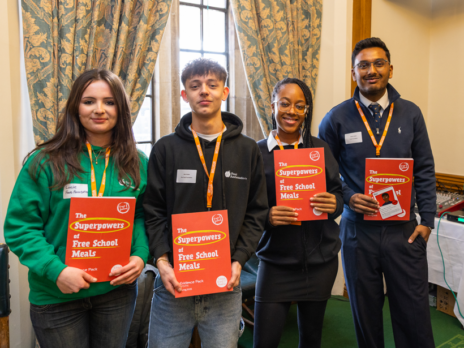
Vladimir Putin is running out of time. Not, as some have suggested, because the ground will soon thaw and the tanks he has sent to Russia’s border with Ukraine risk getting bogged down in the mud. Nor because the regime elite might start losing their nerve at the threat of Western sanctions and stage a palace coup. But because, despite all of the military force Putin has mustered, Ukraine is slipping from his grasp.
The Russian president started the clock on this himself. When he annexed Crimea in March 2014, he secured access to the Black Sea naval base he had long coveted and a territory that many Russians, even some liberals, believed had been wrongly transferred to Ukraine back in the Soviet days. I was based in Moscow at the time, and it seemed like the slogan Krym Nash! – “Crimea is ours” – was everywhere. Putin’s approval rating soared into the 80s and stayed above 80 per cent for the next three years. The annexation was celebrated as a great victory that marked Russia’s resurgence as a major power on the world stage, but it also set in motion the reckoning we are witnessing now.
Putin’s decision to seize Crimea and start the subsequent war in eastern Ukraine sparked a rapid overhaul of the Ukrainian military. Whereas in 2014, some soldiers lacked helmets and boots and volunteers resorted to crowdfunding basic supplies, the US alone has spent more than $2.7bn on training and equipment for Ukraine in the years since, including anti-tank missiles, drones and radar systems. Kyiv now has almost 100,000 more troops than it did in 2014, with 250,000 personnel (up from 168,000). Where Ukraine’s defence minister complained back then that only 6,000 soldiers were combat-ready, the country has now been at war for almost eight years.
“Kremlin officials complain that Ukraine is becoming more militarised,” Maria Snegovaya, an adjunct senior fellow at the Center for a New American Security, told me. “However, ironically that’s a problem the Kremlin created in the first place by attacking Ukraine back in 2014.”
That military build-up has only intensified in recent weeks as Russia masses troops and armour on Ukraine’s borders. On 1 February, the Ukrainian president Volodymyr Zelensky announced that he would increase the size of the country’s armed forces by another 100,000 troops over the next three years, and soldiers’ salaries would be raised.
Nato allies including the UK, Latvia, Lithuania and Estonia, have rushed weapons and ammunition to Kyiv to strengthen its defences, and the US has agreed to transfer five military helicopters to Ukrainian control. Oleksii Reznikov, Ukraine’s defence minister, has been live tweeting the arrival of transport aircraft landing at the capital’s airport, pointing out the crates full of equipment such as Stinger missiles and grenades. “In total, we received 17 birds weighing almost 1,500 tons!” he posted on 13 February along with photos of a cargo hold packed with boxes of ammunition. “Our friends are not sleeping!”
While this still amounts to a fraction of the size and sophistication of the resources the Russian military has at its disposal, the cost of a new invasion of Ukraine is increasing with every new plane full of military aid. If Putin does intend to alter the country’s trajectory with the “military-technical” measures he has threatened, the longer he waits, the stronger the opposing forces will become.
Ukraine is moving away from Russia in political and economic terms too. As Jeremy Cliffe wrote recently in the New Statesman, whereas a 2011 Pew poll found 84 per cent of Ukrainian respondents viewed Russia favourably, that figure had fallen to 32 per cent by 2019, and has presumably plummeted even further since. The balance of trade has also shifted westwards. That trend was underway by 2012 when the European Union overtook Russia as Ukraine’s largest trading partner, but it has accelerated markedly since 2014. The country has enshrined its commitment to joining Nato and the European Union in its constitution. Even Ukraine’s Orthodox Church has separated from its Russian counterpart.
Zelensky’s stance towards Russia has hardened since he was elected in 2019. He has moved to curtail Russian influence in the country and enforced a controversial language law that requires all print media outlets to publish in Ukrainian. Viktor Medvedchuk, a Ukrainian oligarch and politician who describes himself as a close personal friend of Putin’s, was sanctioned and placed under house arrest in 2021. Three television channels he owned have been shut down. The first Russian build-up in March 2021 began the month after Medvedchuk was targeted.
For Putin, there is still a way out of this that could be dressed up to resemble a victory. A series of carefully choreographed, televised meetings with his top officials on 14 February suggested he might yet be prepared to step back from the brink. Sergei Lavrov, Russia’s foreign minister, was filmed telling him that diplomatic options were “far from exhausted”, while his defence minister Sergei Shoigu said that “large-scale drills” near Ukraine were coming to an end. On 15 February, Russia’s defence ministry said it had begun drawing down troops on the border. (Nato professed “cautious optimism” at the announcement with the caveat that it hadn’t yet witnessed any signs of change on the ground.)
The Russian president can claim to have forced a serious discussion of Europe’s security architecture with the US. He has re-established Moscow, at least temporarily, as the centre of the diplomatic world, and he has demonstrated he can deploy Russian troops at will to Belarus. But he will not succeed in returning Ukraine to Russia’s orbit by force. The more he threatens, the further and faster he will push it away.
[See also: How Russia’s neighbours are turning against Putin]



